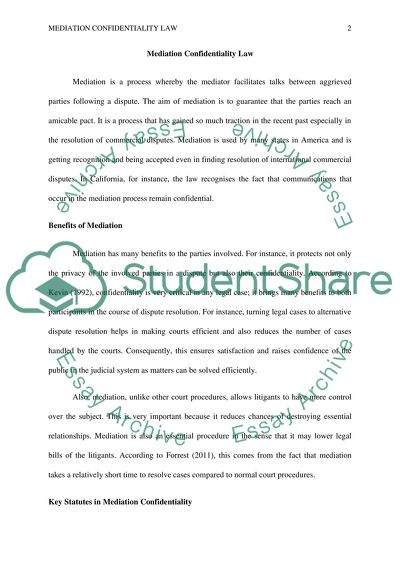Cite this document
(“Describe the law in relation to confidentiality within mediation by Research Paper”, n.d.)
Retrieved from https://studentshare.org/law/1661424-describe-the-law-in-relation-to-confidentiality-within-mediation-by-reference-to-the-law-in-your-state-and-any-relevant-cases-detail-the-areas-of-uncertainty-and-discuss-why-there-may-or-may-not-be-issues
Retrieved from https://studentshare.org/law/1661424-describe-the-law-in-relation-to-confidentiality-within-mediation-by-reference-to-the-law-in-your-state-and-any-relevant-cases-detail-the-areas-of-uncertainty-and-discuss-why-there-may-or-may-not-be-issues
(Describe the Law in Relation to Confidentiality Within Mediation by Research Paper)
https://studentshare.org/law/1661424-describe-the-law-in-relation-to-confidentiality-within-mediation-by-reference-to-the-law-in-your-state-and-any-relevant-cases-detail-the-areas-of-uncertainty-and-discuss-why-there-may-or-may-not-be-issues.
https://studentshare.org/law/1661424-describe-the-law-in-relation-to-confidentiality-within-mediation-by-reference-to-the-law-in-your-state-and-any-relevant-cases-detail-the-areas-of-uncertainty-and-discuss-why-there-may-or-may-not-be-issues.
“Describe the Law in Relation to Confidentiality Within Mediation by Research Paper”, n.d. https://studentshare.org/law/1661424-describe-the-law-in-relation-to-confidentiality-within-mediation-by-reference-to-the-law-in-your-state-and-any-relevant-cases-detail-the-areas-of-uncertainty-and-discuss-why-there-may-or-may-not-be-issues.


